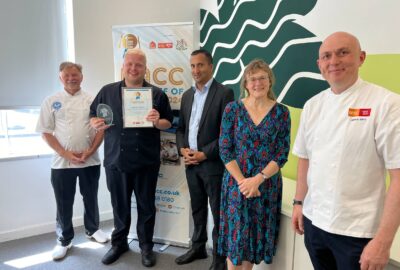From this month a new global framework governing texture modified foods will come into operation in the UK.
The IDDSI (International Dysphagia Diet Standardisation Initiative) framework is a worldwide initiative which aims to improve the lives of over 590million people living with dysphagia.
The framework aims to improve clinical safety and efficiency by standardising the terminology and consistency of different food providers in order to reduce risk.
It consists of a continuum of eight levels (0-7) and includes descriptors, testing methods and evidence for both drink thickness and food texture levels.
Catherine Rabess, specialist nutrition support dietician for the NHS and media spokesperson for the British Dietetic Association, explains: “The new framework will ensure that patients are receiving the appropriate texture modified diet. The terminology had changed over the years and had become quite confusing, the result being that there had been problems with clients not receiving the correct food and becoming quite poorly or experiencing choking episodes.
“It’s a huge change. From a dietetic point of view, it’s really important that chefs ensure that the food looks palatable and appetising, and, if possible, use moulds. It needs to be full of flavour and have a range of colours as this will stimulate the tastebuds and saliva glands.”
The National Association of Care Catering (NACC) is fully supporting IDDSI.
National chair Neel Radia commented: “An internationally recognised framework that defines texture modified foods and thickened liquids is essential for global consistency and the safeguarding of individuals with dysphagia, whatever their age, culture or care setting.
“We’re supporting our members and the care catering sector to prepare for roll out. The NACC Training and Development Forum 2018 had a workshop dedicated to IDDSI, our Training Academy is providing specific IDDSI training and our website is regularly updated with the latest information. We urge everyone to use the resources available to them in readiness for implementation.”
Case Study :
Allan Brazier is the director of hospitality services at brighterkind, a residential care provider with 70 care homes in its portfolio. brighterkind started planning for IDDSI 12 months ago and welcomes the new framework.
“We realise how important it is that all of our residents can enjoy the same quality meals and dining experience, and we have revised all of our textured modified meals training to incorporate the new terminology. Within care homes there is still the potential for the current national descriptors to be confused with older terms, whereby lots of residents can potentially be classed as being on a “soft diet’. To have the opportunity to launch these new guidelines is a fantastic opportunity for brighterkind to get all of our team members to a better level of understanding.
“We’re very lucky to have Liz Brinksman who is a dedicated person out in the business training texture-modified diet training, and having a defined date for implementation gave us something to get behind and work towards. It was a great opportunity to re-focus everyone’s minds on texture-modified foods.
“We organised 10 roadshows with interactive training sessions with the intention of having at least three IDDSI champions in every care home, and have produced our own training videos and pocket guide for team members to use.
“From this month (April) our plan is to amalgamate these videos for everyone joining the business so that everyone will have an awareness of IDDSI as part of their induction to brighterkind.”


